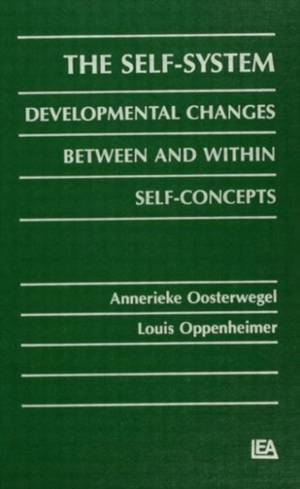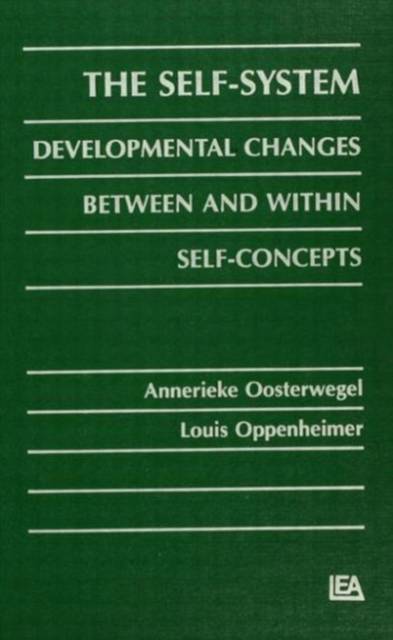
- Retrait gratuit dans votre magasin Club
- 7.000.000 titres dans notre catalogue
- Payer en toute sécurité
- Toujours un magasin près de chez vous
- Retrait gratuit dans votre magasin Club
- 7.000.0000 titres dans notre catalogue
- Payer en toute sécurité
- Toujours un magasin près de chez vous
The Self-System
Developmental Changes Between and Within Self-Concepts
Annerieke Oosterwegel, Louis Oppenheimer
Livre relié | Anglais
195,95 €
+ 391 points
Format
Description
This book presents a longitudinal study dealing with developmental changes within and between self-concepts and their relation to personal functioning. Within the psychological literature -- and the developmental literature in particular -- the interest in the ideas people hold about themselves and their relation with personal functioning is rapidly growing. This interest is reinforced by the emphasis on individuality in Western society.
The self-system is now thought to consist of a collection of self-concepts in which a distinction is made between domain-specific self-concepts -- the real and ideal -- and context-related self-concepts -- the academic, the athletic and the social. It is also considered to be subjective rather than objective. This subjective self involves characteristics such as continuity and distinctiveness from others. These characteristics have been the primary focus of recent research. In existing literature on the development of the self-system, little is known about the structural characteristics -- that is, developmental changes in the interrelationships among domain-specific and context-related self-concepts, or between and within self-concepts. Similarly, little information is available about the relationships between individuals' real and ideal self concepts, their perceived concepts of others, and the actual ideas others have about the same individuals. This book integrates hitherto separate and different components or aspects of self-knowledge into one encompassing, multidimensional self-system.Spécifications
Parties prenantes
- Auteur(s) :
- Editeur:
Contenu
- Nombre de pages :
- 208
- Langue:
- Anglais
Caractéristiques
- EAN:
- 9780805812169
- Date de parution :
- 01-11-92
- Format:
- Livre relié
- Format numérique:
- Genaaid
- Dimensions :
- 151 mm x 238 mm
- Poids :
- 449 g

Les avis
Nous publions uniquement les avis qui respectent les conditions requises. Consultez nos conditions pour les avis.






